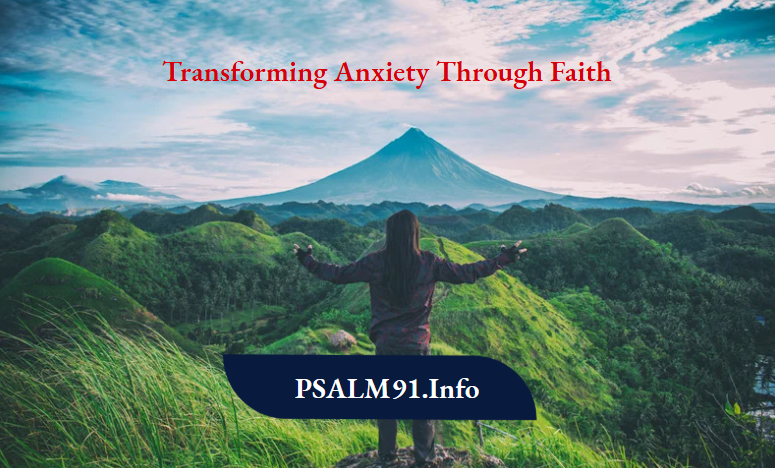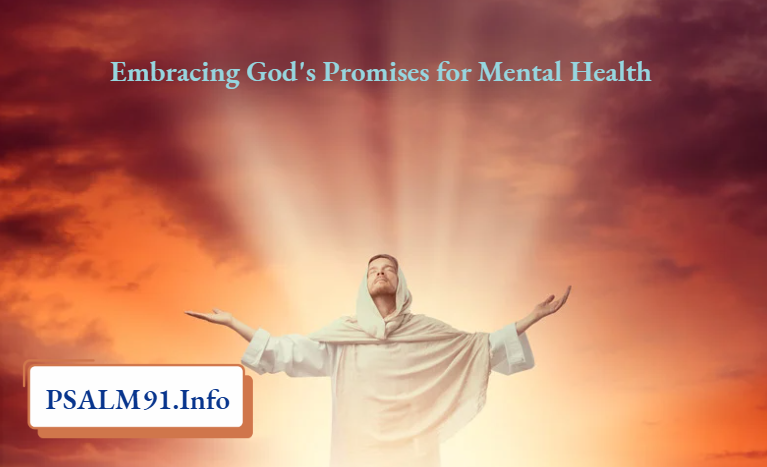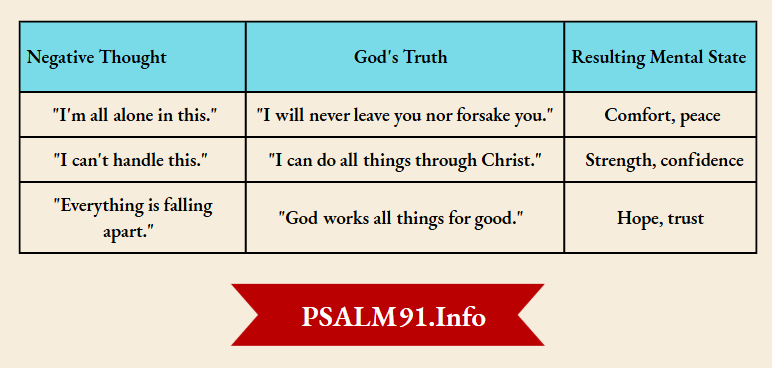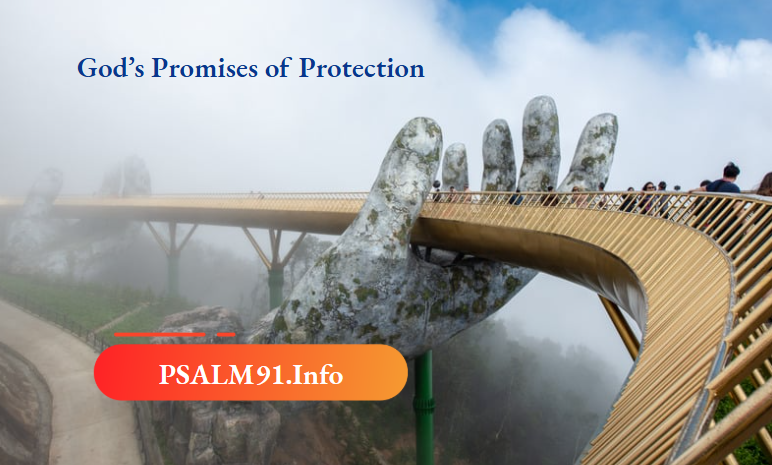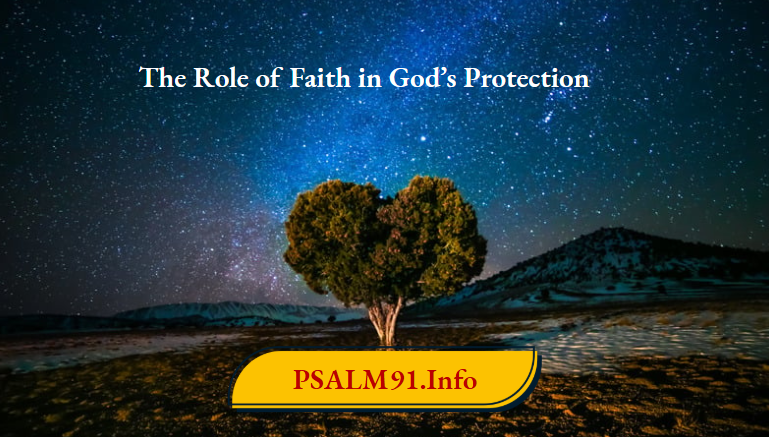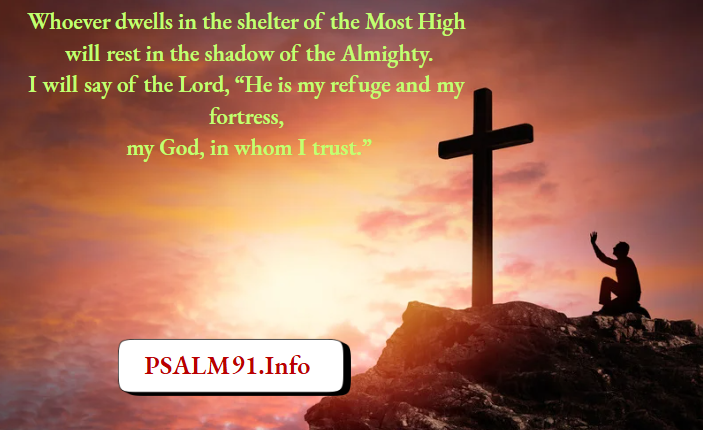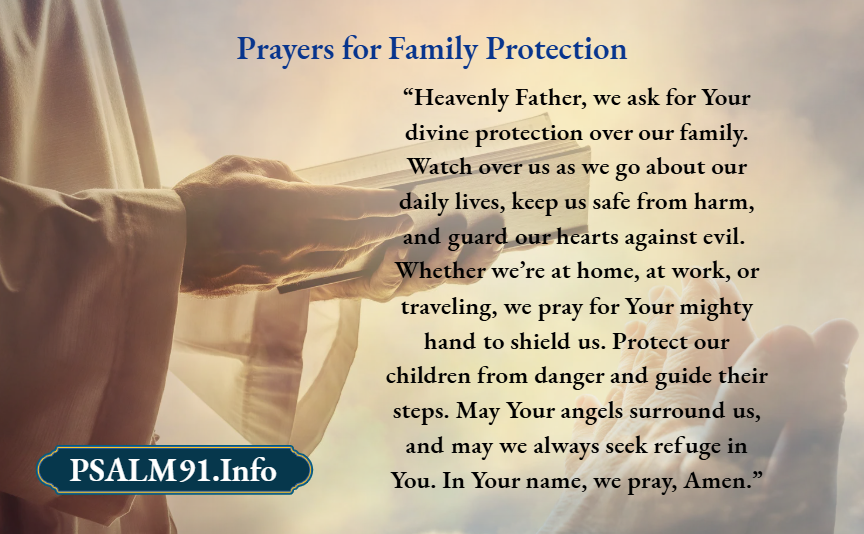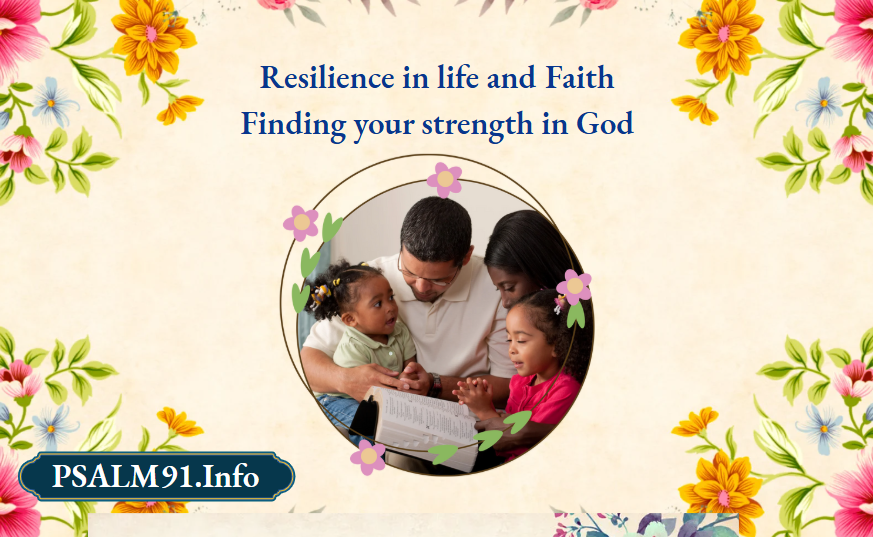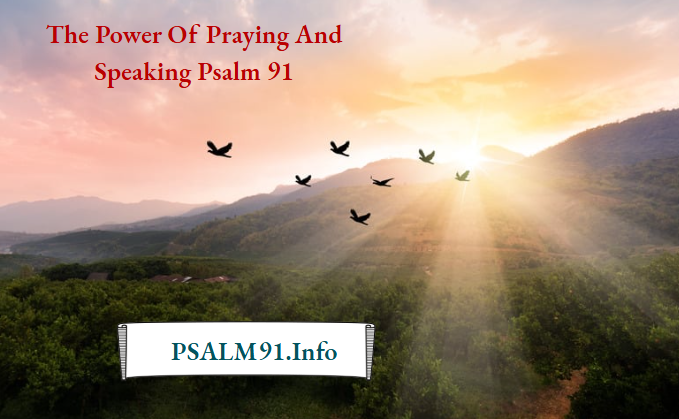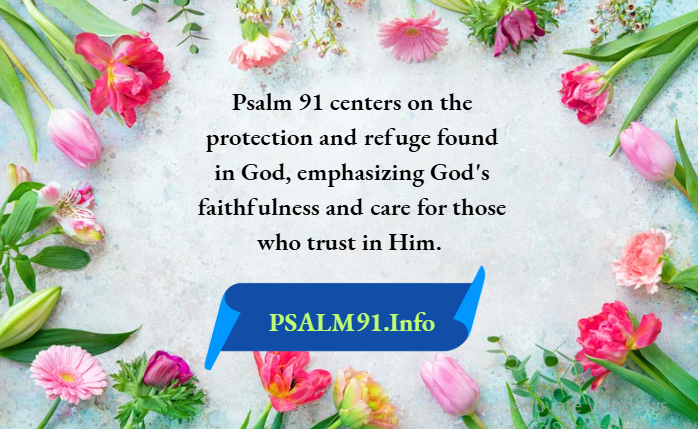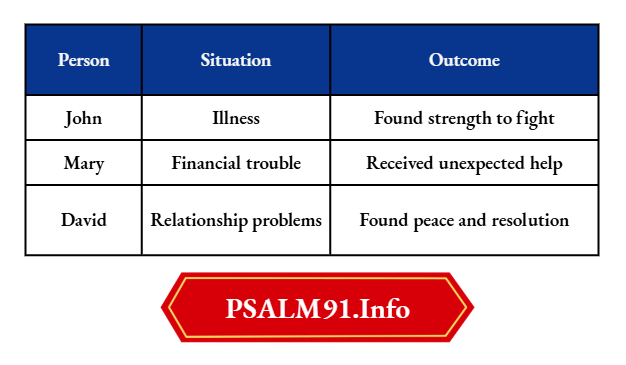Psalm 91: A Verse-by-Verse Breakdown
Psalm 91 is a beloved chapter in the Bible that offers comfort and reassurance to those facing life’s challenges. It speaks of God’s protection and faithfulness, making it a source of hope for many. In this article, we’ll break down Psalm 91 verse by verse, exploring its meanings and how it can be applied to our daily lives.
Whether you’re looking for solace in tough times or seeking to deepen your understanding of divine protection, this breakdown will help you connect with the powerful messages in this psalm.
Psalm 91
- Psalm 91 emphasizes God’s unwavering protection for those who trust in Him.
- The themes of faith and prayer are central to experiencing divine shelter.
- Understanding the historical context enhances our appreciation of the psalm’s messages.
- Incorporating Psalm 91 into daily practices can strengthen personal faith.
- Different translations of Psalm 91 offer unique insights into its meaning.
Understanding The Context Of Psalm 91
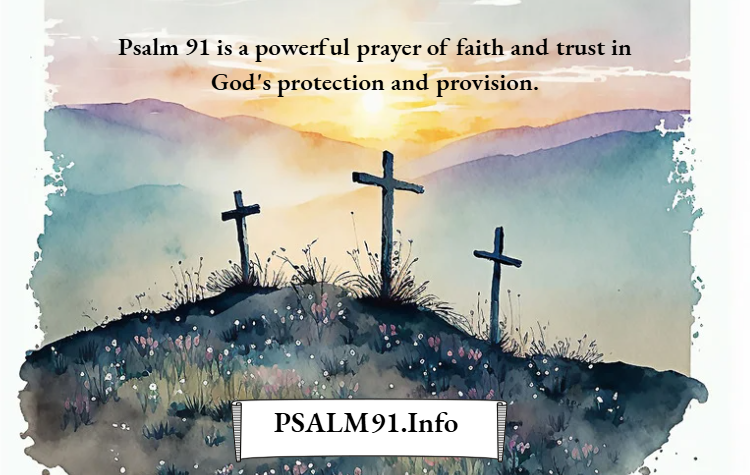
Historical Background
Understanding the historical background of Psalm 91 gives us a better appreciation for its message. It’s tough to say for sure who wrote it. Some think Moses did, especially since it has similarities to Deuteronomy 33. Others suggest David, who wrote a lot about trust and being saved. Regardless, the main point is clear: God always protects and cares for us.
- Authorship is debated.
- Likely written during a time of crisis.
- The message is about God’s protection.
Psalm 91 probably came about during a difficult time, maybe with plagues, wars, or general unrest. The promises of safety and rescue show a need for comfort when things are scary, making it a hopeful psalm for everyone.
Psalm 91 Commentary
Cultural Significance
Psalm 91 has been super important in both Jewish and Christian traditions for ages. People turn to it when they’re struggling, during big world problems, or when they’re just not sure about their faith. It’s not just about being safe; it’s about really trusting in God’s faithfulness. The psalm’s cultural impact is huge, offering divine shelter to those who believe.
- Used in Jewish and Christian traditions.
- Offers comfort during hard times.
- Emphasizes trust in God.
Literary Structure
Psalm 91 is put together in a way that really highlights trusting God and feeling secure. It’s like a poem, carefully organized to build up the message. The structure helps us understand the psalm better:
- Verses 1-2: Saying you trust God.
- Verses 3-13: Promises of safety.
- Verses 14-16: God speaking directly, promising to help those who are faithful.
This makes it great for praying and thinking deeply, because each part reinforces the main idea of trusting in God.
Exploring The Themes Of Psalm 91
Divine Protection
Psalm 91 is basically the go-to passage for anyone seeking reassurance about God’s care. It paints a vivid picture of God as a shield, a fortress, and a refuge. It’s not just about physical safety, but also about emotional and spiritual security. The psalm uses powerful imagery, like sheltering under His wings, to convey this sense of complete protection. It’s like having a bodyguard, but, you know, a divine one.
Faith and Trust
This psalm isn’t a magic spell; it’s an invitation to trust. It emphasizes that divine protection is available to those who actively choose to believe in God’s promises. It’s about more than just knowing about God; it’s about knowing Him personally and relying on His faithfulness. It’s a call to deepen your trust in God.
The Role of Prayer
Prayer is the active ingredient. The psalm implies a relationship where we can call on God, and He will answer. It’s not a passive thing; it requires us to reach out, to communicate, and to seek His presence. It’s like having a direct line to the ultimate source of help and comfort.
It’s a reminder that we’re not alone in our struggles. God is always there, ready to listen and to act on our behalf. It’s about building a relationship with Him through prayer and experiencing His presence in our lives.
Here’s a simple breakdown:
- Prayer is communication.
- Prayer is seeking guidance.
- Prayer is expressing trust.
A Verse-by-Verse Analysis Of Psalm 91
Verse 1: The Shelter of the Most High
Verse 1 sets the stage, introducing the idea of dwelling in the secret place of the Most High. It’s about finding a place of refuge and security in God. This verse emphasizes the importance of seeking God’s presence as a primary source of protection. It suggests a deliberate choice to reside under His shadow, a place of comfort and safety. It’s not a passive thing; it’s an active decision to make God your dwelling.
Psalm 91 Explained
Verse 5: Fearlessness in Danger
Verse 5 speaks directly to the absence of fear, even in the face of danger. It’s a powerful statement about trusting in God’s protection regardless of the circumstances. It’s not about denying the existence of danger, but about having confidence that God will shield you from harm. This verse is often quoted in times of crisis, offering reassurance and hope. The promise of divine protection is a central theme here.
Verse 14: The Promise of Deliverance
Verse 14 marks a shift, with God speaking directly. It’s a personal promise of deliverance and protection to those who love Him and know His name. This verse highlights the reciprocal nature of the relationship between God and His followers. It’s not just about receiving protection, but about actively loving and knowing God. The promise includes not only physical safety but also honor and satisfaction. It’s a complete package of care and provision.
Meaning of Psalm 91
This verse is a reminder that God’s protection is not automatic. It’s conditional upon our love for Him and our knowledge of His name. It’s an invitation to deepen our relationship with God and experience the fullness of His blessings.
The Power Of Psalm 91 In Troubled Times
Psalm 91 isn’t just some old poem; it’s a lifeline, especially when things get tough. It’s like a reminder that you’re not alone in the chaos, that there’s something bigger watching over you. People have turned to this psalm for centuries, finding comfort and strength in its words during all sorts of crises.
Comfort During Crisis
Psalm 91 offers a sense of peace when everything around you feels like it’s falling apart. It’s a declaration that even in the midst of turmoil, there’s a refuge, a safe place to run to. Think of it as a warm blanket on a cold night, a reminder that you’re protected. It’s not about magically making problems disappear, but about finding the strength to face them, knowing you’re not doing it alone.
Strengthening Faith
Faith isn’t always easy. Doubts creep in, especially when you’re dealing with tough situations. Psalm 91 acts like a booster shot for your faith. It reminds you of God’s promises, of His unwavering commitment to those who trust in Him. It’s a way to actively combat those doubts and reaffirm your belief in something bigger than yourself.
It’s about more than just reciting words; it’s about internalizing the message, letting it sink deep into your soul. It’s about choosing to believe, even when you don’t see immediate results.
Encouragement for Believers
Psalm 91 is a source of encouragement. It’s a reminder that you’re part of something bigger, a community of believers who have found solace and strength in these words for generations. It’s a way to connect with that history, to draw strength from the experiences of others who have faced their own trials and tribulations. It’s a reminder that you’re not the first to struggle, and you won’t be the last, but you’re never truly alone.
Here are some ways believers can find encouragement:
- Reading the Psalm daily.
- Sharing the Psalm with others.
- Reflecting on the Psalm’s meaning.
Incorporating Psalm 91 Into Daily Life
Praying The Psalm
Okay, so you want to actually use Psalm 91, not just read about it, right? One of the simplest ways is to make it a regular part of your prayer life. You can read it aloud each morning, or maybe before bed. Some people even pray it multiple times a day. The key is consistency. Think of it as putting on spiritual armor every day. You can also personalize it, inserting your name or the names of loved ones into the verses. It’s like saying, “God, I’m claiming these promises for myself and my family.”
Meditation Techniques
Beyond just reading the words, try meditating on them. Pick a verse or two that really speaks to you and just sit with it. Close your eyes, breathe deeply, and imagine what that verse means in your life. For example, if you’re meditating on “He will cover you with his feathers,” picture yourself safe and secure under God’s wings. What does that feel like? What does it look like? Let the imagery sink in. This isn’t about emptying your mind, it’s about filling it with God’s presence and divine protection.
Journaling Reflections
Journaling can be a powerful way to connect with Psalm 91 on a deeper level. After reading or meditating on the psalm, take some time to write down your thoughts and feelings. Ask yourself questions like:
- What verses stood out to me today?
- How have I experienced God’s protection in my life?
- What fears or anxieties am I facing, and how can Psalm 91 help me address them?
- What does it mean to live under God’s care
Writing down your reflections can help you process your emotions and gain a clearer understanding of how Psalm 91 applies to your specific circumstances. It’s like having a conversation with God on paper.
Psalm 91 commentary
Here’s a simple table to track your journaling progress:
|Date| Verse(s) Focused On | Key Reflection the psalm’s promises. It’s a way to make the words of Psalm 91 truly your own.
Comparing Translations Of Psalm 91
King James Version Insights
The King James Version (KJV) offers a unique perspective on Psalm 91, characterized by its elevated language and formal tone. This translation often uses phrasing that emphasizes the majesty and power of God, which can be particularly comforting. For example, the KJV’s rendering of certain verses might highlight God’s active role in shielding believers from harm in a way that feels especially potent. It’s interesting to see how the KJV presents the idea of divine shelter.
New International Version Differences
The New International Version (NIV) aims for clarity and accessibility in its translation of Psalm 91. This version often uses more contemporary language, making the psalm easier to understand for modern readers. The NIV might simplify complex metaphors or phrases found in older translations, focusing on conveying the core message of protection and trust in God. Here are some key differences to consider:
- Word Choice: The NIV often opts for simpler, more direct vocabulary.
- Sentence Structure: Sentences are generally shorter and easier to follow.
- Emphasis: The NIV may emphasize the personal relationship with God more explicitly.
Catholic Edition Perspectives
The Catholic Edition of the Bible, such as the Revised Standard Version Catholic Edition (RSVCE), provides another lens through which to view Psalm 91. This edition often includes footnotes and commentary that offer insights into the psalm’s theological and historical context within the Catholic tradition. The Catholic Edition might also emphasize the communal aspect of faith, highlighting how Psalm 91 speaks to the Church as a whole. It’s a good idea to incorporate this psalm into your prayer life.
Understanding the nuances between these translations can enrich your appreciation of Psalm 91. Each version offers a slightly different shade of meaning, reflecting the diverse ways in which people connect with this powerful psalm of protection.
The Significance Of Divine Protection

Understanding God’s Shield
What does it really mean to have divine protection? It’s more than just a nice thought; it’s about understanding that God is our shield in a very real way. It’s about recognizing that He provides a barrier against the dangers and difficulties we face. Think of it like this:
- God’s protection is a constant presence.
- It’s a promise for those who trust in Him.
- It’s not just physical safety, but also emotional and spiritual well-being.
The Importance of Faith
Faith is a big part of experiencing divine protection. It’s not enough to just know that God can protect you; you have to believe that He will. It’s about trusting even when you can’t see the way forward.
Faith is the foundation upon which we build our relationship with God and receive His promises. Without faith, it’s hard to fully experience the protection He offers.
Psalm 91 breakdown
Living Under God’s Care
Living under God’s care means making a conscious choice to rely on Him in every area of your life. It’s about seeking His guidance, trusting His wisdom, and resting in His peace. It’s not always easy, but it’s always worth it. Here’s how you can start:
- Pray regularly, asking for His protection and guidance.
- Read the Bible, focusing on verses that speak of His care and love.
- Surround yourself with people who encourage your faith.
Finding Comfort in Psalm 91
So, there you have it. Psalm 91 is more than just some ancient text; it’s a source of real comfort and strength. It reminds us that no matter what life throws our way, we can find safety in God. Whether you’re facing tough times or just need a little reassurance, this psalm has something for everyone. It’s all about trusting in God’s protection and knowing that He’s got your back. So, take a moment to reflect on these verses, let them sink in, and remember that you’re never alone. Embrace the promises of Psalm 91 and let them guide you through whatever challenges come your way.
Psalm 91 Frequently Asked Questions
What Is Psalm 91 About?
Psalm 91 is a chapter in the Bible that talks about God’s protection and safety for those who trust in Him. It reassures believers that God will be their shelter during tough times.
Why Is Psalm 91 Important?
This Psalm is important because it provides comfort and hope. It reminds people that God is always there to protect and help them, no matter what challenges they face.
How can I use Psalm 91 In My Daily Life?
You can use Psalm 91 by praying it, reflecting on its meaning, or writing about how it relates to your life. It can help strengthen your faith and provide peace.
What Does It Mean To Dwell In The ‘Shelter Of The Most High’?
Dwell in the ‘shelter of the Most High’ means to live in close relationship with God, trusting Him completely for safety and guidance.
Can I Pray Psalm 91 For Others?
Yes, you can pray Psalm 91 for others, asking for God’s protection and care over them. It’s a way to share hope and support with friends and family.
Are There Different Translations Of Psalm 91?
Yes, there are many translations of Psalm 91, each offering a slightly different wording. Popular versions include the King James Version and the New International Version, which can help you understand its message better.

